This is part one of what will be a two part series on the most influential scientists in history. While these are not technically the “greatest” scientists, there is bound to be some overlap as the contributions that many of these men and women made to science are among the most important. Be sure to tell us who you think should be on the future list - we already have our second ten, but it might lead to a third or fourth.
10 Marie Curie
1867 – 1934
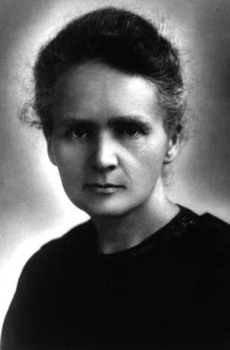
“One never notices what has been done; one can only see what remains to be done.”
Polish physicist and chemist, Marie Curie was a pioneer in the field of radioactivity, the only person honored with Nobel Prizes in two different sciences, and the first female professor at the University of Paris. She founded the Curie Institutes in Paris and Warsaw. Her husband Pierre Curie was also a Nobel laureate, as were her daughter Irene Joliot-Curie and son-in-law Frederic Joliot-Curie. Her achievements include the creation of a theory of radioactivity (a term coined by her), techniques for isolating radioactive isotopes, and the discovery of two new elements, radium and polonium. It was also under her personal direction that the world’s first studies were conducted into the treatment of neoplasms (”cancers”), using radioactive isotopes. While an actively loyal French citizen, she never lost her sense of Polish identity. She named the first new chemical element that she discovered (1898) “polonium” for her native country, and in 1932 she founded a Radium Institute in her hometown Warsaw, headed by her physician-sister Bronisława.
9 Alan Turing
1912 – 1954
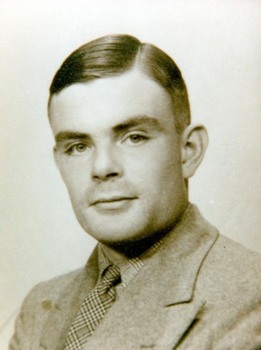
“Science is a differential equation. Religion is a boundary condition.”
English mathematician and logician, Turing is often considered to be the father of modern computer science. He provided an influential formalization of the concept of the algorithm and computation with the Turing machine. With the Turing test, meanwhile, he made a significant and characteristically provocative contribution to the debate regarding artificial intelligence: whether it will ever be possible to say that a machine is conscious and can think. He later worked at the National Physical Laboratory, creating one of the first designs for a stored-program computer, the ACE, although it was never actually built in its full form. In 1948, he moved to the University of Manchester to work on the Manchester Mark I, then emerging as one of the world’s earliest true computers. During the Second World War, Turing worked at Bletchley Park, the UK’s code breaking centre, and was for a time head of Hut 8, the section responsible for German naval cryptanalysis. He devised a number of techniques for breaking German ciphers, including the method of the bombe, an electromechanical machine that could find settings for the Enigma machine.
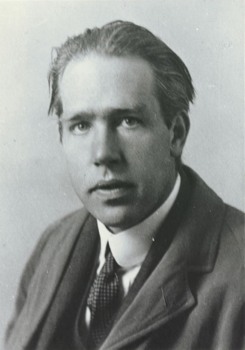
“An expert is a man who has made all the mistakes which can be made in a very narrow field.”
Niels Bohr was a Danish physicist who made fundamental contributions to understanding atomic structure and quantum mechanics, for which he received the Nobel Prize in Physics in 1922. Bohr’s work helped solve the problems classical physics could not explain about the nuclear model of the atom. He postulated that electrons moved in fixed orbits around the atom’s nucleus, and he explained how they emitted or absorbed energy. Bohr mentored and collaborated with many of the top physicists of the century at his institute in Copenhagen. He was also part of the team of physicists working on the Manhattan Project. One of his sons, Aage Niels Bohr, grew up to be an important physicist who, like his father, received the Nobel Prize, in 1975. Bohr has been described as one of the most influential physicists of the 20th century.
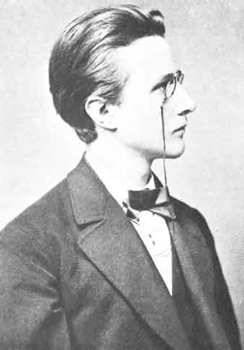
“We have no right to assume that any physical laws exist, or if they have existed up to now, that they will continue to exist in a similar manner in the future.”
Max Planck, a German physicist, is considered to be the founder of quantum theory, and one of the most important physicists of the twentieth century. Planck made many contributions to theoretical physics, but his fame rests primarily on his role as originator of the quantum theory. This theory revolutionized our understanding of atomic and subatomic processes, just as Albert Einstein’s theory of relativity revolutionized our understanding of space and time. Together they constitute the fundamental theories of 20th-century physics. His discoveries have led to industrial and military applications that affect every aspect of modern life.
6 Charles Darwin
1809 – 1882
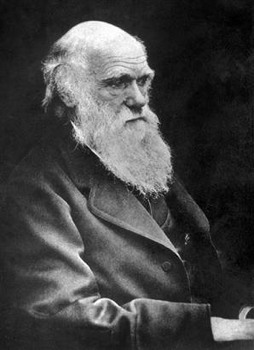
“I love fools’ experiments. I am always making them.”
English naturalist and biologist, Darwin demonstrated that all species of life have evolved over time from common ancestors through the process he called natural selection. The fact that evolution occurs became accepted by the scientific community and the general public in his lifetime, while his theory of natural selection came to be widely seen as the primary explanation of the process of evolution in the 1930s, and now forms the basis of modern evolutionary theory. In modified form, Darwin’s scientific discovery remains the foundation of biology, as it provides a unifying logical explanation for the diversity of life. His 1859 book On the Origin of Species established evolution by common descent as the dominant scientific explanation of diversification in nature. He also examined human evolution and sexual selection in The Descent of Man, and Selection in Relation to Sex, followed by The Expression of the Emotions in Man and Animals. In recognition of Darwin’s pre-eminence, he was one of only five 19th century UK non-royal personages to be honored by a state funeral.
Leonardo da Vinci
1452 – 1519
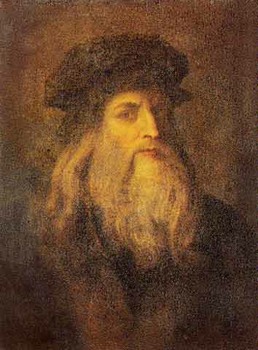
“Anyone who conducts an argument by appealing to authority is not using his intelligence; he is just using his memory.”
Leonardo da Vinci was an Italian polymath. He was an expert mathematician, engineer, inventor, anatomist, painter, sculptor, architect, botanist, musician and writer. Leonardo has often been described as the archetype of the “Renaissance man”, a man whose seemingly infinite curiosity was equalled only by his powers of invention. Leonardo is revered for his technological ingenuity. He conceptualized a helicopter, a tank, concentrated solar power, a calculator, the double hull and outlined a rudimentary theory of plate tectonics. Relatively few of his designs were constructed or were even feasible during his lifetime, but some of his smaller inventions, such as an automated bobbin winder and a machine for testing the tensile strength of wire, entered the world of manufacturing unheralded. As a scientist, he greatly advanced the state of knowledge in the fields of anatomy, civil engineering, optics, and hydrodynamics.
4 Galileo Galilei
1564 – 1642
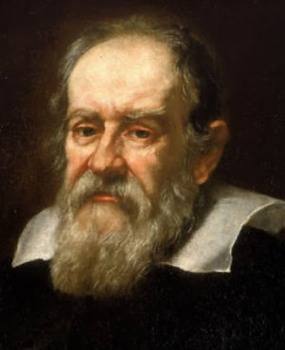
“All truths are easy to understand once they are discovered; the point is to discover them.”
Galileo was an Italian physicist and astronomer. His achievements include improvements to the telescope and consequent astronomical observations, and support for Copernicanism. Galileo has been called the “father of modern observational astronomy”, the “father of modern physics”, the “father of science”, and “the Father of Modern Science.” The motion of uniformly accelerated objects, taught in nearly all high school and introductory college physics courses, was studied by Galileo as the subject of kinematics. His contributions to observational astronomy include the telescopic confirmation of the phases of Venus, the discovery of the four largest satellites of Jupiter, named the Galilean moons in his honor, and the observation and analysis of sunspots. Galileo also worked in applied science and technology, improving compass design. Galileo’s championing of Copernicanism was controversial within his lifetime. The geocentric view had been dominant since the time of Aristotle, and the controversy engendered by Galileo’s presentation of heliocentrism as proven fact resulted in the Catholic Church’s prohibiting its advocacy because it was not empirically proven at the time. Galileo was eventually forced to recant his heliocentrism and spent the last years of his life under house arrest on orders of the Holy Inquisition.
3 Nikola Tesla
1856 – 1943
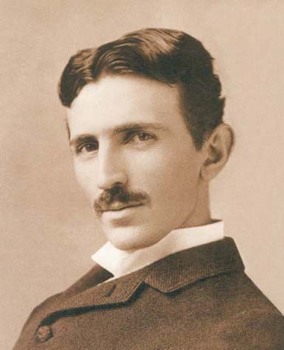
“The scientists of today think deeply instead of clearly. One must be sane to think clearly, but one can think deeply and be quite insane.”
Tesla was a Serbian engineer and inventor who is often described as the most important scientist and inventor of the modern age, a man who “shed light over the face of Earth”. He is best known for many revolutionary contributions in the field of electricity and magnetism in the late 19th and early 20th centuries. Tesla’s patents and theoretical work formed the basis of modern alternating current electric power (AC) systems, including the polyphase power distribution systems and the AC motor, with which he helped usher in the Second Industrial Revolution. Contemporary biographers of Tesla have regarded him as “The Father of Physics”, “The man who invented the twentieth century” and “the patron saint of modern electricity.” Aside from his work on electromagnetism and electromechanical engineering, Tesla has contributed in varying degrees to the establishment of robotics, remote control, radar and computer science, and to the expansion of ballistics, nuclear physics, and theoretical physics. In 1943, the Supreme Court of the United States credited him as being the inventor of the radio. Many of his achievements have been used, with some controversy, to support various pseudosciences, UFO theories, and early New Age occultism.
2 Albert Einstein
1879 – 1955
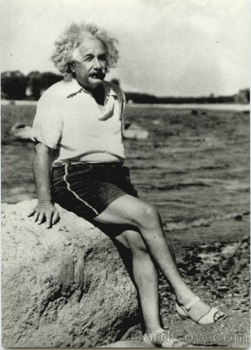
“A man should look for what is, and not for what he thinks should be.”
Einstein, a German physicist, is best known for his theory of relativity and specifically mass–energy equivalence, expressed by the equation E = mc2. Einstein received the 1921 Nobel Prize in Physics “for his services to Theoretical Physics, and especially for his discovery of the law of the photoelectric effect. Einstein’s many contributions to physics include his special theory of relativity, which reconciled mechanics with electromagnetism, and his general theory of relativity, which was intended to extend the principle of relativity to non-uniform motion and to provide a new theory of gravitation. His other contributions include advances in the fields of relativistic cosmology, capillary action, critical opalescence, classical problems of statistical mechanics and their application to quantum theory, an explanation of the Brownian movement of molecules, atomic transition probabilities, the quantum theory of a monatomic gas, thermal properties of light with low radiation density (which laid the foundation for the photon theory), a theory of radiation including stimulated emission, the conception of a unified field theory, and the geometrization of physics. Einstein published over 300 scientific works and over 150 non-scientific works. The physics community reveres Einstein, and in 1999 Time magazine named him the “Person of the Century”. In wider culture the name “Einstein” has become synonymous with genius.
1 Isaac Newton
1643 – 1727
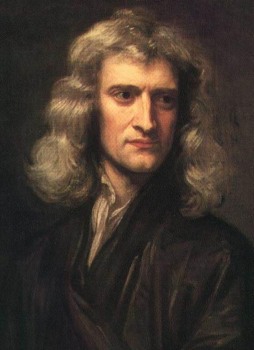
“To myself I am only a child playing on the beach, while vast oceans of truth lie undiscovered before me.”
Newton was an English physicist, mathematician, astronomer, natural philosopher, alchemist, theologian and one of the most influential men in human history. His Philosophiæ Naturalis Principia Mathematica, published in 1687, is considered to be the most influential book in the history of science. In this work, Newton described universal gravitation and the three laws of motion, laying the groundwork for classical mechanics, which dominated the scientific view of the physical universe for the next three centuries and is the basis for modern engineering. Newton showed that the motions of objects on Earth and of celestial bodies are governed by the same set of natural laws by demonstrating the consistency between Kepler’s laws of planetary motion and his theory of gravitation, thus removing the last doubts about heliocentrism and advancing the scientific revolution. In mechanics, Newton enunciated the principles of conservation of momentum and angular momentum. In optics, he built the first “practical” reflecting telescope and developed a theory of color based on the observation that a prism decomposes white light into a visible spectrum. He also formulated an empirical law of cooling and studied the speed of sound. In mathematics, Newton shares the credit with Gottfried Leibniz for the development of the differential and integral calculus. He also demonstrated the generalized binomial theorem, developed the so-called “Newton’s method” for approximating the zeroes of a function, and contributed to the study of power series. Newton’s stature among scientists remains at the very top rank, as demonstrated by a 2005 survey of scientists in Britain’s Royal Society asking who had the greater effect on the history of science, Newton was deemed much more influential than Albert Einstein.
This article is licensed under the GFDL because it contains quotations from Wikipedia.









